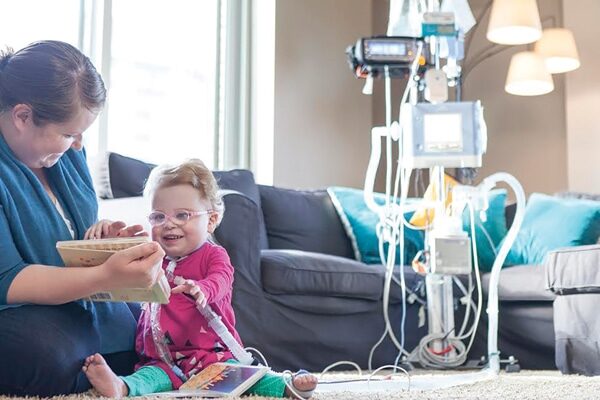In-home pediatric services offer a transformative approach to child healthcare by providing comprehensive medical and therapeutic care within the familiar confines of your home. This specialized care model is designed to cater not only to the physical health needs of children but also to significantly support their emotional, social, and intellectual growth.
By delivering health care in a child’s living environment, these services foster a seamless and integrated experience that can profoundly impact a child’s developmental trajectory, making each step of their growth closely observed and immediately supported.
Tailored Health Care at Home
Early Detection and Continuous Monitoring
Early detection and continuous monitoring are pivotal benefits of in-home pediatric services, allowing healthcare providers to identify and address developmental delays and health issues as they arise. By regularly observing children in their natural home environments, practitioners can spot subtle changes in behavior or development that might be overlooked in less familiar settings.
This proactive approach facilitates timely interventions that are critical for effective treatment outcomes. Moreover, continuous monitoring ensures that each child’s care plan is dynamically adjusted to their evolving needs, providing a solid foundation for optimal growth and health throughout their critical early years.
Consistency and Comfort
One of the most significant benefits of in-home care is the consistency and comfort it provides to young patients. Hospital visits can often be stressful and disruptive for children; receiving care in the home minimizes these issues, allowing children to adhere to a stable routine in an environment where they feel most secure.
This consistent, comforting presence of healthcare providers helps to build a trusting relationship between the child and the caregiver, which is vital for the success of ongoing treatments and interventions.
Specialized Therapeutic Services
Speech and Language Therapy
Home-based services typically include specialized therapeutic offerings such as speech and language therapy, which is critical for children experiencing developmental delays or communication issues. Conducting therapy in a home setting allows speech therapists to engage with children in a space where they are comfortable and relaxed, which can significantly improve communication skills more effectively and swiftly than might be possible in a less familiar environment.
Physical and Occupational Therapy
Delivering physical and occupational therapy at home provides therapists the opportunity to customize their strategies to suit the child’s specific living environment. This customization facilitates the development of practical skills and adaptations that are immediately applicable, thus promoting better motor skills, coordination, and independence in daily activities. Children can practice these skills in real time with the guidance of their therapist, encouraging faster and more enduring progress.
Educational and Behavioral Interventions
Individualized Learning Plans
Educational interventions that take place within the home are particularly effective, especially for children with special educational needs. These interventions involve individualized learning plans that are flexible and adapted to the child’s own pace and style of learning. This approach not only respects the child’s unique developmental needs but also promotes a more personalized and responsive educational experience, which can lead to significantly improved cognitive and academic outcomes.
Behavioral Therapy
Behavioral therapy conducted in the home setting is uniquely advantageous because it allows therapists to directly observe and intervene in the behaviors occurring in the natural context. This firsthand observation enables therapists to devise more accurately targeted interventions and to provide strategies that are specifically suited to the child’s daily interactions and challenges, thereby helping improve their behavioral responses and enhance their social skills more effectively.
Enhanced Parental Involvement
Training and Support for Families
The in-home care model naturally promotes an increased level of parental involvement by integrating training and support into the family’s daily environment. This approach not only empowers parents with the skills and knowledge necessary to support their child’s development but also ensures that therapeutic and healthcare interventions are more consistently applied, resulting in more comprehensive care and better developmental outcomes.
Stronger Parent-Child Bonding
Incorporating healthcare and therapeutic interventions into the home setting inherently fosters deeper interaction and bonding between parents and children. As parents become more actively involved in their child’s care and therapeutic processes, they naturally spend more time interacting with their child, which strengthens the emotional bond and supports the child’s social and emotional development more broadly.
This close involvement not only helps children feel more secure and understood but also enables parents to tailor their support more effectively, enhancing the overall therapeutic process. The relaxed home environment further promotes open communication and understanding, deepening the trust and connection between parent and child.
Conclusion
In-home pediatric services revolutionize the approach to child development by providing holistic, tailored healthcare and specialized therapies within the comfort of the home.
This care model not only ensures improved health outcomes but is also crucial in supporting broader developmental milestones. As these services become more accessible to families, their profound impact on childhood development continues to be recognized and valued, making in-home care an essential option for enhancing the developmental journey of many children.


